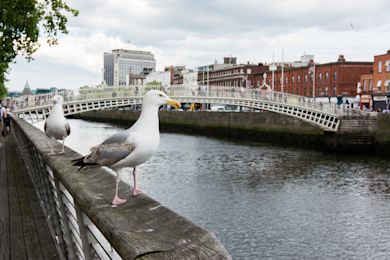- News and articles
- Events
- Find usIDP AustraliaIDP BahrainIDP BangladeshIDP CambodiaIDP CanadaIDP ChinaIDP EgyptIDP GhanaIDP Hong KongIDP IndiaIDP IndonesiaIDP IranIDP JordanIDP KenyaIDP KoreaIDP KuwaitIDP LebanonIDP MalaysiaIDP MauritiusIDP Middle EastIDP NepalIDP New ZealandIDP NigeriaIDP OmanIDP PakistanIDP PhilippinesIDP Saudi ArabiaIDP Sri LankaIDP Taiwan, ChinaIDP ThailandIDP TurkeyIDP UAEIDP VietnamIDP Corporate
- Social
- English
Topics covered
- Published: 14 November 2024
Is studying at a Singapore university the only way to become a doctor here?
While the three local medical schools do offer strong programmes, not all students can find a spot among their limited annual intakes. Look abroad and many more options open up for you to attain a globally recognised medical degree that is also accepted by Singapore’s stringent requirements.
More overseas medical schools recognised in Singapore
To better meet the growing demand for doctors as the country’s population ages, the Ministry of Health and Singapore Medical Council has added 9 more overseas universities under its list of medical degrees recognised in Singapore, whose graduates can apply to practise here.
This brings the total number of approved overseas medical schools to 112.
Additional medical institutions announced on 11 November 2024:
Australian medical schools recognised by Singapore
University of Newcastle, School of Medicine and Public Health
Ireland medical schools recognised by Singapore
University College Cork – National University of Ireland, School of Medicine
University College Dublin – National University of Ireland, School of Medicine
Royal College of Surgeons in Ireland – National University of Ireland, School of Medicine
UK medical schools recognised by Singapore
The Queen’s University of Belfast, School of Medicine, Dentistry and Biomedical Sciences
University of Aberdeen, School of Medicine, Medical Sciences and Nutrition
University of Leeds, School of Medicine
University of Newcastle upon Tyne, Faculty of Medical Sciences
University of Warwick, Warwick Medical School
Expanded pathways to become a doctor in Singapore
For Singapore’s three local medical schools—National University of Singapore’s Yong Loo Lin School of Medicine, Nanyang Technological University’s Lee Kong Chian School of Medicine and the Duke-NUS Graduate Medical School—their annual intakes were about 500 combined in 2023.
With the 9 more universities with medical degrees recognised in Singapore from 2025, you’ll have more freedom to choose from globally respected programmes in countries like Australia, the UK, Ireland, the USA, Canada and New Zealand, and return to become a doctor in Singapore.
Upholding Singapore’s high standards of medical practice
The Health Ministry confirmed that each overseas institution on the list of medical degrees recognised in Singapore was selected based on rigorous criteria such as the schools’ international rankings, language of instruction for practice in Singapore (i.e. English), and the performance of doctors who graduated from these universities.
Regardless of nationality, medical students who graduate from the recognised universities can apply to practise and become doctors in Singapore. This includes medical students who have graduated before 2025.
It added that the Singapore Medical Council maintains strict standards for practice, and has a supervisory framework in place to assess medical doctors trained overseas in their initial years.
Why study medicine abroad?
Diverse Clinical Experience and Unique Learning Environments
Studying medicine at an overseas medical school recognised in Singapore offers you benefits beyond traditional academic training. You will gain exposure to diverse healthcare systems, various patient demographics, and unique specialisations through internationally accredited programmes.
The experience will also broaden your clinical perspective and adaptability, which are invaluable skills for a doctor in Singapore, or anywhere in the world.
How to find the right course for your medical career
With over 112 overseas university options for medical degrees recognised in Singapore, you have the advantage of choice for the course that best suits you.
Whether your question is about how much it costs to study medicine, or requirements for studying medicine, you can get free guidance from the trained professionals at IDP, a global leader in student placement services.
IDP’s education advisors will help you explore programmes and scholarships that fit your financial plans and situation. Services are free, so book a counselling session today and start your journey to becoming a doctor in Singapore
One account for all your study abroad needs
Create your profile and unlock a wide array of features including personalised recommendations, fast-tracked applications and much more.
Search for articles
Dive into our extensive collection of articles by using our comprehensive topic search tool.
















